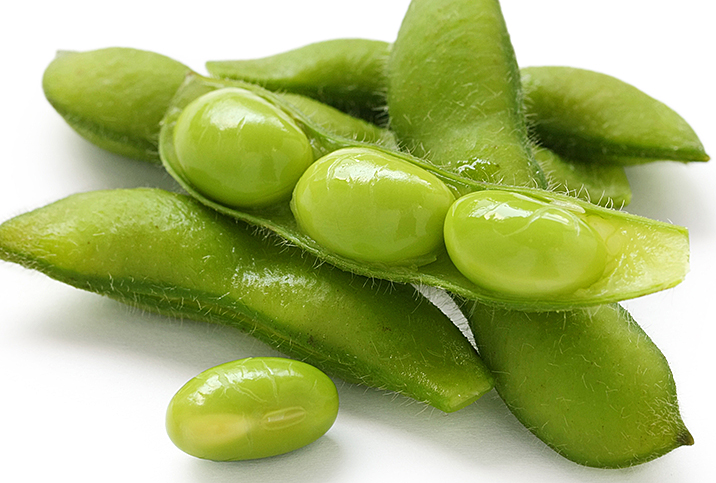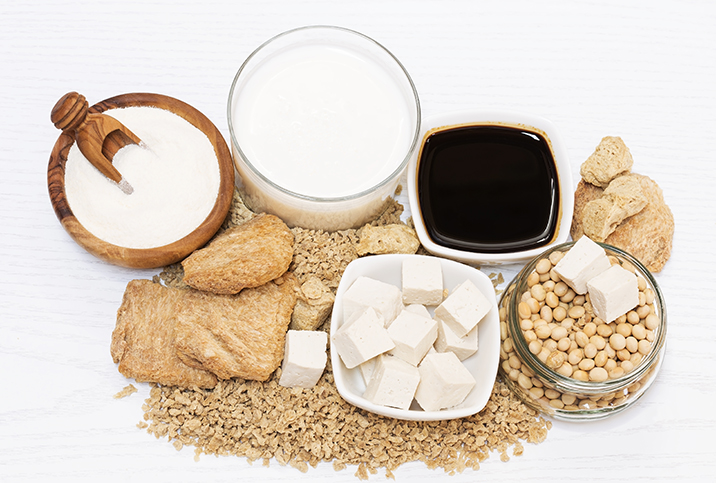Healthy Proteins. Healthy Fats. Healthy Prostate.

Diet is an integral part of your health, and eating foods to target individual organs and body parts is also important. Your prostate just so happens to require healthy proteins and fats to reduce the risk of prostate cancer and other potential prostate issues. So if you're reaching age 55 and want to combat the second most common type of cancer in men, learn what to avoid and make the switch to prostate-healthy foods.
What types of food to avoid
Before you make drastic changes to your diet needlessly, you should first understand what types of food you should avoid. You don't necessarily have to cut these foods out altogether, but they've been commonly linked to more aggressive forms of prostate cancer, so beware.
Fried foods
Those delicious golden morsels in the form of donuts, french fries and chicken nuggets are the sworn enemy of your prostate. Fast food, in particular, can also be lumped into this category. The link between these types of foods and prostate cancer centers around the use of trans fats in the frying process. While the reasons behind the link aren't yet known, several studies have shown that men who eat fried food regularly also show elevated levels of prostate-specific antigens (PSA), which may be indicative of prostate cancer.
Red meat and processed meat
In small quantities, red meat and processed meat aren't a cause for concern. But high consumption has been linked to an increased risk for high cholesterol and prostate cancer.
The reason behind these negative health impacts is the presence of heterocyclic amines (HCAs) in cooked meat. HCAs naturally occur when red meat is cooked at a high temperature through broiling, barbecuing or frying. The problem with HCAs is that they're carcinogenic and when ingested in large quantities, they may increase the risk for prostate cancer and other cancers.
Healthy proteins and fats for your prostate
Now that you know what to avoid, you can make the transition to healthier foods that focus on staving off prostate cancer and other prostate issues. Healthy proteins and fats are central to this idea, but don't forget about fruits and vegetables that may also boost your prostate's well-being.
Fish
Omega-3 fatty acids are not synthesized in the human body and must be obtained through your diet. They're vital to prostate health and overall health. These polyunsaturated fats have been shown to reduce the risk of prostate cancer, other types of cancer and inflammation of the blood vessels and slow plaque buildup in them.
Cold-water fish have been found to have higher levels of these fatty acids, so opt for salmon, trout or mackerel instead of warm-water fish such as catfish or bass.
Plant-based proteins
You can certainly opt for plant-based burgers or sausages to replace your red meat intake, but don't forget about other delicious plant-based proteins. Nuts, flax and whole grains also have healthy proteins packed with phytochemicals, substances that may reduce the risk of cancer.
If you're not a fan of these foods, you don't have to eat them raw. You can put nuts in salads, add them to some of your favorite dishes or crush them up and use them to crust your favorite fish in place of breadcrumbs.
Pomegranates
Known as one of the "superfoods," pomegranates are packed with antioxidants that may prevent the proliferation of free radical molecules, which can cause cancer over time. Studies have also indicated that pomegranates have anti-cancer effects, including in prostate tissue. So whether you want a glass of juice or a few of these sweet little beads of deliciousness in your breakfast cereal, you can eat as much as you want. You only need to watch the calories behind your intake.
Discover what you like
The greatest way to fail in any diet is thinking that you can't indulge in less healthy food from time to time. It's all about balance. If you've eaten fish and salad all month, chomping down on one burger isn't likely to undo all your hard work. Still, making the right dietary choices will not only improve your overall health but can also specifically target prostate health. The right choices may just help you avoid prostate cancer.
















